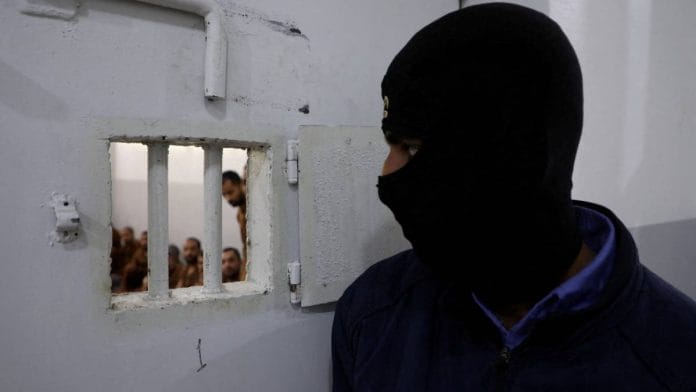New Delhi: Terrorist outfits al-Qaeda and Islamic State of Iraq and the Levant (ISIL) have undergone decentralisation, where they rely heavily on regional affiliates for collection of funds for functioning and conduct of terrorist activities, the Financial Action Task Force (FATF) has documented in its latest report.
The body monitoring terror financing across the world stated that these terrorist groups have started operating through “regional hubs”, which perform the two-fold task of gathering revenue before transferring to other affiliates, and keeping affiliations with local groups alive.
The observations were documented in FATF’s July 2025 report titled ‘Comprehensive Update on Terrorist Financing Risks’. It was released after the FATF’s plenary in France last month.
According to the watchdog, these terror groups also utilise regional affiliates to disseminate their message and objectives, employing both offline and online methods to raise funds from sympathisers.
“Some organisations of this type have been reported to generate income from online sale of organisational products, such as T-shirts and flags with organisational signs. Terrorist entities with large networks and investments, businesses, and assets spanning multiple jurisdictions are also reported as increasingly using professional enablers (e.g., lawyers, accountants) to facilitate their financing networks,” the report states.
On the decentralisation of al-Qaeda’s activities and fund collection, the FATF noted that the outfit has established Majlis al-Shura, a centralised consultation council, to manage strategic decisions, including financial management.
“Decentralisation has been one of the most reported trends regarding worldwide terrorism activities in recent years,” the report states. “As the organisation (al-Qaeda) has progressively shifted to a de-centralised model, loose central elements are now relying on regional branches.”
Under this model, regional branches such as Al-Qaeda in the Islamic Maghreb (AQIM), Al-Qaeda in the Arabic Peninsula (AQAP), Jama’a Nusrat ul-Islam wa al-Muslimin (JNIM), Al-Qaeda in the Indian Subcontinent (AQIS) or Al-Shabaab in Somalia generate funds locally and strategise operations regionally, it says.
The AQIM is an Algeria-based outfit active in North Africa and the Sahel region. The AQAP is based in Yemen and is also conducting operations in Saudi Arabia. The JNIM is based in Mali, while the AQIS is active in the Indian sub-continent, aiming to remove western influences from South Asia and replace secular governments with a unified Islamic emirate that enforces strict Sunni Islamic law.
A similar trend has been observed in the functioning of the ISIL as well, the FATF notes, adding that its branches in Africa have reported a “noteworthy” improvement in revenue generation in recent years. This generation of revenue from the African branches marks a departure from their strongest days, when they held territorial control in parts of Syria and Iraq.
“At the culminating point of its territorial control in parts of Syria and Iraq, ISIL was able to centrally generate most of its revenue and resources through taxation, exploiting natural resources (especially gas and oil) and conducting criminal activities. In recent years, the importance of revenue generated by ISIL-branches in Africa has been especially noteworthy, as these branches are considered less vulnerable to disruption, in part due to their reliance on informal channels and illicit sources, such as KFR (kidnapping for ransom), abusing local populations or illicit smuggling,” the report underlines.
It further states that over the past decade, terrorists have demonstrated a “persistent ability to exploit the international financial system to support their activities and carry out attacks. While the methods they employ can vary widely, the overall trend underscores their adaptability and determination”.
Based on findings and case studies spanning more than a decade, the FATF underscored that nearly 69 percent of jurisdictions and global networks were found to have significant and structural deficiencies in investigations, prosecution, and conviction in terror financing cases.
(Edited by Nida Fatima Siddiqui)
Also Read: Couldn’t have occurred without money & means to move funds—FATF on Pahalgam terror attack






